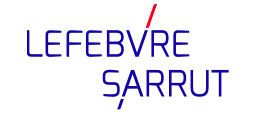AI & legal survey: with rising use, scenarios for transformed practices are emerging
Paris La Défense, 14 November 2024 –
Lefebvre Sarrut, the European leader in legal and tax knowledge, has teamed up with the European Legal Technology Association (ELTA) to produce the second annual Legal Professionals & Generative AI Global Survey. The 2024 report reveals fast growth in the use of generative AI in legal work despite uncertainty about its impact on legal practices and jobs.
The rise in regular use of generative AI
The survey reveals fast growth in the use of generative AI, with around 80% of respondents using these technologies weekly, and around a half daily. Some 90% of these legal professionals say that generative AI effectively supports their work.
A variety of applications for legal document analysis and production
Although the widespread day-to-day adoption focuses on generic, non-legal AI tools, the perceived benefit is real and documented in the study through well-identified use cases, particularly in legal research and document production.
The main uses of generative AI include document analysis (19%) and document production (17%). Legal searches account for only 13% of overall use but increase (23%) when specific tools are used.
However, legal professionals are not yet confident about generative AI’s ability to produce legal documents: for 50% of respondents, its effectiveness in managing legal documents remains to be proven.
Among the drivers of trust, the survey identifies the ability to personally test it (28%), the need for training (20%), and the transparency and understanding of the tool (19%).
Adoption challenges and outlook
Given that this is a very recent technological opportunity, organizations are still in the early stages of establishing dedicated governance and financial management:
- In terms of AI policy, only 38% of organisations have defined an AI policy.
- In terms of budget, three approaches are noticeable: 28% of organizations invest heavily with budgets exceeding €50,000, 21% invest less than €5,000, and 27% have no budget.
- In terms of ROI, 47% of respondents do not know how to assess their expectations.
Perceived impact on legal professions
Perceptions and expectations of AI have matured since 2023, and for a majority of professionals (66%), AI’s usefulness has become indisputable: 44% believe AI will greatly assist their work.
However, respondents display cautious optimism: 24% acknowledge that AI poses a threat to certain aspects of their work, while a majority remain neutral, including on the topic of job cuts in the legal sector. This cautious neutrality is wise, given the uncertainty of the ongoing transformation.
Maria de la O Martinez, Director of Innovation at Lefebvre Sarrut, commented, “With the development of generative AI tools, legal professionals are seeing a revolution in their practices and professions. To remain productive and competitive, they must adopt modern legal tools. We are committed to providing legal professionals with the resources and training they need to navigate this constantly changing landscape. The availability of AI tools designed specifically for legal work, based on verified, up-to-date legal documents, will help build trust.”
Gregoire Miot, President of the European Legal Technology Association, said “The evolution we’ve seen since last year has been meteoric. What’s most notable is that all legal professions are maturing, both in their perception of generative AI and in their use cases. Of course, not all are moving forward at the same pace, but no legal profession is lagging behind. This new report also confirms the clear lead of the in-house legal professions, who continue to drive innovation for the entire legal market. In this context, ELTA plays an essential role in helping to bring greater transparency and understanding to this technological challenge, as much as for the decision-makers and legislators who are shaping the future of law in Europe.”
In partnership with the European Company Lawyers Association (ECLA)
Methodology: survey carried out between July and September 2024, based on data provided anonymously and analysed independently. The survey was answered by 463 respondents in 36 European countries.
